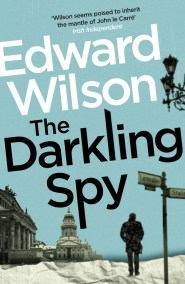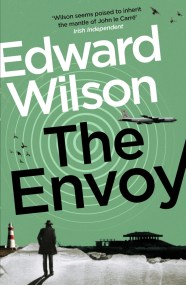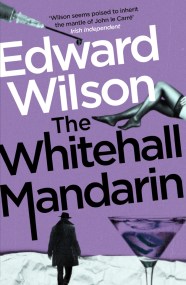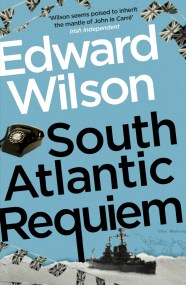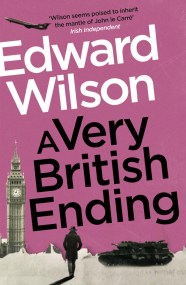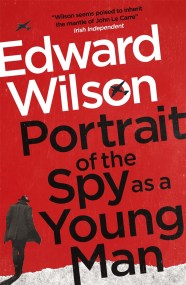The Midnight Swimmer
On sale
1st June 2013
Price: £9.99
A brilliant Cuban Missile Crisis spy thriller by a former special forces officer and ‘the thinking person’s John le Carré’
‘The thinking person’s John le Carré’ Tribune
‘Edward Wilson seems poised to inherit the mantle of John le Carré’ Irish Independent
‘More George Smiley than James Bond, Catesby will delight those readers looking for less blood and more intelligence in their spy thrillers’ Publishers Weekly
October, 1962. If the Cuban gamble goes wrong and war breaks out, Britain will no longer exist.
London dispatches a secret envoy to defuse the confrontation. Spawned in the bleak poverty of an East Anglian fishing port, Catesby is a spy with a big anti-establishment chip on his shoulder. He loves his country, but despises the class who run it.
Loathed by the Americans and trusted by the Russians, Catesby is sent to Havana and Washington to make clandestine contacts. London has authorised Catesby to offer Moscow a secret deal to break the Cuban Missile Crisis deadlock. But before that can happen, Catesby meets the Midnight Swimmer who has a chilling message for Washington.
A triangle of love and death that began in Berlin ends in Cuba. On one corner is a war disabled KGB general, on another corner is his unfulfilled wife . . .
This sophisticated novel is full of twists and turns that merge historical fact with fiction. Sleaze and high politics literally share the same beds. A white-knuckle superpower standoff is played out against a backdrop of honey trap blackmail, Mafia contracts, assassinations and Vatican scandal.
‘An intellectually commanding thriller’ Independent
‘An excellent spy novel . . . belongs on the bookshelf alongside similarly unsettling works by le Carré, Alan Furst and Eric Ambler’ Huffington Post
Praise for Edward Wilson:
‘Stylistically sophisticated . . . Wilson knows how to hold the reader’s attention’ W.G. Sebald
‘A reader is really privileged to come across something like this’ Alan Sillitoe
‘All too often, amid the glitzy gadgetry of the spy thriller, all the fast cars and sexual adventures, we lose sight of the essential seriousness of what is at stake. John le Carré reminds us, often, and so does Edward Wilson’ Independent
‘The thinking person’s John le Carré’ Tribune
‘Edward Wilson seems poised to inherit the mantle of John le Carré’ Irish Independent
‘More George Smiley than James Bond, Catesby will delight those readers looking for less blood and more intelligence in their spy thrillers’ Publishers Weekly
October, 1962. If the Cuban gamble goes wrong and war breaks out, Britain will no longer exist.
London dispatches a secret envoy to defuse the confrontation. Spawned in the bleak poverty of an East Anglian fishing port, Catesby is a spy with a big anti-establishment chip on his shoulder. He loves his country, but despises the class who run it.
Loathed by the Americans and trusted by the Russians, Catesby is sent to Havana and Washington to make clandestine contacts. London has authorised Catesby to offer Moscow a secret deal to break the Cuban Missile Crisis deadlock. But before that can happen, Catesby meets the Midnight Swimmer who has a chilling message for Washington.
A triangle of love and death that began in Berlin ends in Cuba. On one corner is a war disabled KGB general, on another corner is his unfulfilled wife . . .
This sophisticated novel is full of twists and turns that merge historical fact with fiction. Sleaze and high politics literally share the same beds. A white-knuckle superpower standoff is played out against a backdrop of honey trap blackmail, Mafia contracts, assassinations and Vatican scandal.
‘An intellectually commanding thriller’ Independent
‘An excellent spy novel . . . belongs on the bookshelf alongside similarly unsettling works by le Carré, Alan Furst and Eric Ambler’ Huffington Post
Praise for Edward Wilson:
‘Stylistically sophisticated . . . Wilson knows how to hold the reader’s attention’ W.G. Sebald
‘A reader is really privileged to come across something like this’ Alan Sillitoe
‘All too often, amid the glitzy gadgetry of the spy thriller, all the fast cars and sexual adventures, we lose sight of the essential seriousness of what is at stake. John le Carré reminds us, often, and so does Edward Wilson’ Independent
Newsletter Signup
By clicking ‘Sign Up,’ I acknowledge that I have read and agree to Hachette Book Group’s Privacy Policy and Terms of Use



